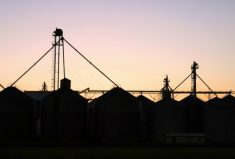On one hand it’s tempting to say, “If it ain’t broke, don’t fix it,” because the Senate Agriculture and Forestry Committee certainly isn’t broke. Reading transcripts of meetings of the House of Commons Agriculture and Agri-Food Committee can be a bit of a chore, as members often engage in partisan politics. That’s not only a distraction — it tends to put witnesses on their guard for fear of being drawn into them.
In contrast, Senate committee meetings are typically polite affairs with intelligent questions from senators and relaxed responses from witnesses. The result has been a series of non-partisan and well-reasoned reports which usually deserve more attention from the government and the agriculture community. Recent examples include reports on international market access, the bovine TB outbreak in Alberta and the importance of bee health to sustainable food production in Canada.
Read Also

Grain seller beware
Canadian farmers selling grain need to be vigilant while doing business in an unstable financial climate.
However, there are no Senate Agriculture and Forestry Committee members with any background in agriculture. That’s not all bad — it means they approach issues with no ideological baggage, and aren’t afraid to ask witnesses questions about points they don’t understand.
However, it does seem unusual to have a 16-member committee with no members with background in its subjects. In the past when senators were chosen partly because of political affiliation, that might have been just as well. Having one or two members with rigid positions on contentious issues might be a disruption. But now that there is a new process for appointing independent senators, that’s less of a concern.
The Senate currently has members representing a wide spectrum of Canadian society, but none with agricultural background. Since there is currently one Senate vacancy in both Manitoba and Saskatchewan, there is now a good opportunity to remedy that. Perhaps no farmers have applied, but there are no doubt several good candidates among farmers who have had experience in general farm or commodity organizations. The committee responsible for recommending Senate appointments should search them out.



















